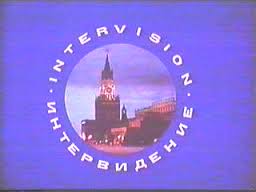Lighting Up the Switchboards

In 2002, the “reality” TV show American Idol took the United States by storm. The show, a hardly-subtle derivative of the British show Pop Idol, featured dozens of contestants hoping to sing their way into a record deal. During initial rounds, a panel of celebrity judges vetted and voted on contestants, but in the semi-finals and beyond, viewers had the power. Each episode, the show’s producers assigned a toll-free number to each contestant, and those watching at home could call their favored contestant’s number to vote for him or her.
The phone-in-a-vote model was hardly innovative, though. Other shows had been using similar tactics for decades. And some tried, but failed — and one came up with a somewhat ridiculous but apparently effective workaround.
The Eurovision Song Contest, almost certainly the largest and longest-running annual music competition, is to blame, kind of. Eurovision has been a staple of European television culture since the contest’s founding in 1956; in recent years, dozens of nations have participated. And while few winners become household names on the global stage, some — ABBA most notably — can credit their Eurovision victory for launching their careers. Initially, experts in the music space decided the winner, but for the past two decades, the people have had a voice as well. Since 1997, Eurovision viewers have been allowed to vote via phone for their favorite performers.
Twenty years earlier, however, a Eurovision competitor was even more cutting-edge. The Soviet Union, seeing the decades-long success of Eurovision, wanted its citizens to have an equivalent, communist version. In 1977, the Communist Bloc introduced the Intervision Song Contest, which was, basically, the same thing as Eurovision but featuring performers from communist nations (and some others; for example, Canada participated in 1978 and 1979). By and large, Intervision mirrored how Eurovision worked, with one major exception: Intervision, from day one, allowed viewers at home to vote.
There was only one problem: very few of those viewers had phones.
We take phone access for granted today (to say the least), but commercial cell phones didn’t exist in 1977 and while landlines were common in the U.S. and Western Europe, that wasn’t true behind the Iron Curtain at the time. So, another household item was used: light switches. Quartz explains: “since many citizens didn’t own telephones, they would turn on the lights to vote for a song, and the volume of votes was calculated by observing the increase in power consumption.”
It’s hard to say whether the “vote with your lights” scheme worked, but, as one blog notes, the communist competition was “a far more democratic system than the one used by Eurovision.” (On the other hand, “voting” against a song/performer required you to listen to music you didn’t like while sitting in the dark.) And yet, it proved mostly unpopular — as the Soviet Union began to crumble, Intervision was among the first things to go; 1980 was its fourth and final year.
Bonus fact: In 1991, Pepsi planned to use the phones as the backbone for a major contest. The soft drink giant announced that, during the Super Bowl, they’d be running ads featuring a toll-free number. Anyone who called the number during the game would be entered to win one of three $1,000,000 grand prizes. But just a few days before the big game, Pepsi made a stunning announcement — they called off the contest. The Federal Communications Commission (FCC) advised Pepsi that the telephone switching infrastructure — the devices and systems that make sure we have a dial tone when we go to call someone — couldn’t necessarily handle millions of phone calls coming in all at once. Per the New York Times, “the expected flood of calls might have caused delays of up to 60 seconds in receiving a dial tone in some areas of the country,” which is a huge problem if someone is trying to call for emergency services. Just hours before game time, Pepsi ended up editing their Super Bowl ads to remove the phone number.
From the Archives: When X-Rays Recorded Music: Another Soviet musical curiosity.
Related: An mp3 collection from the 2016 Eurovision competition. You can listen to samples of each of the songs on that page.
